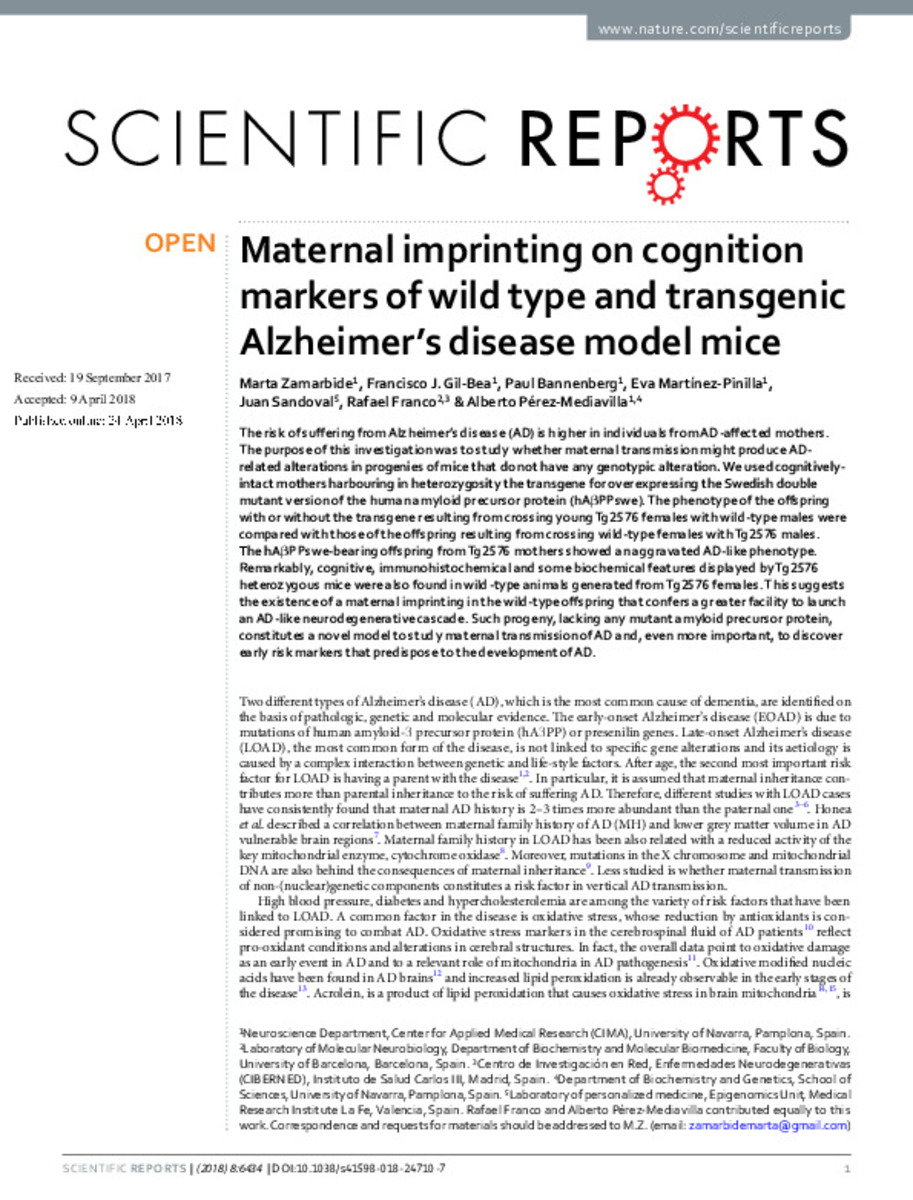Maternal imprinting on cognition markers of wild type and transgenic Alzheimer's disease model mice
Palabras clave :
Alzheimer’s disease (AD)
Alterations in progenies
Mice
Fecha de publicación :
2018
Editorial :
Nature Research
Nota:
This article is licensed under a Creative Commons Attribution 4.0 International
License, which permits use, sharing, adaptation, distribution and reproduction in any medium or
format, as long as you give appropriate credit to the original author(s) and the source, provide a link to the Creative Commons license, and indicate if changes were made. Te images or other third party material in this
article are included in the article’s Creative Commons license, unless indicated otherwise in a credit line to the
material. If material is not included in the article’s Creative Commons license and your intended use is not permitted by statutory regulation or exceeds the permitted use, you will need to obtain permission directly from the
copyright holder. To view a copy of this license, visit http://creativecommons.org/licenses/by/4.0/.
Cita:
Zamarbide-González, M. (Marta); Gil-Bea, F.J. (Francisco J.); Bannenberg, P. (Paul); et al. "Maternal imprinting on cognition markers of wild type and transgenic Alzheimer's disease model mice". Scientific reports. 8, 2018, 6434
Aparece en las colecciones:
Estadísticas e impacto
0 citas en

0 citas en

Los ítems de Dadun están protegidos por copyright, con todos los derechos reservados, a menos que se indique lo contrario.







